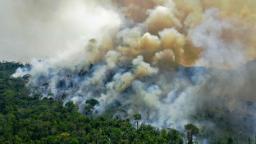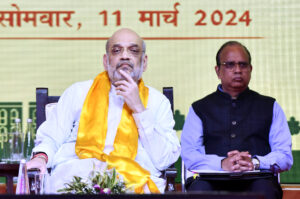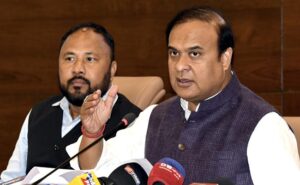Are Amazon fires a ‘lie’? Here’s the evidence

[ad_1]

“This story that the Amazon is on fire is a lie,” he said during the August 10 second Presidential Summit of the Leticia Pact for the Preservation of the Amazon. “And we must combat this with real numbers.”
Yet Bolsonaro’s government continues to reject concerns that fires in the area are out of control — on Wednesday, Vice President Hamilton Mourao insisted that the protected part of the forest “is not burning,” and lashed out at US actor Leonardo diCaprio for posting about the issue on social media.
“I would like to invite our most recent critic, actor Leonardo DiCaprio, to go with me here to São Gabriel da Cachoeira to do an eight-hour march through the jungle between São Gabriel airport and the Cucuí road. There he will better understand how things work in this immense region,” said Mourao, during a conference promoted by the Brazilian industry association (CNI).
Clearing the Amazon
The Amazon is the world’s largest rainforest and an indispensable resource in the battle against global warming. When the rainforest is healthy, its trees and plants pull billions of tons of heat-trapping carbon dioxide from the atmosphere each year, and it is one of the planet’s best defenses against climate change.
Fires are often lit in the Amazon to clear vegetation from parts of the forest that have already been cut down — all in preparation for illegal pasture planting and cattle raising. Environmentalists have criticized Bolsonaro’s outspoken support for logging and development in the Amazon as signaling encouragment for illicit land-clearing operations.
His government has taken some steps to do so. In mid-July, Bolsonaro signed a decree banning fires for 120 days. Brazil’s Defense Ministry also launched Green Brazil Operation 2, a military mission aimed at curbing destructive fires.
While fires increased in the Amazon in July, Bolsonaro pointed out in his August 10 address that total deforestation — which includes fires along with other methods of land-clearing — fell 28%, compared to last year’s record-breaking deforestation in the same month.
Nevertheless, the overall trend suggests bad news for the Amazon’s flora and fauna, with INPE data showing that overall deforestation in the Amazon has risen sharply in the first half of 2020.
For Greenpeace, the presence of fires proves Bolsonaro’s administration is not doing enough to enforce environmental protections “on paper.”
“In 2020, despite the prohibition of the use of fire and with the armed forces in the field since mid-May, the fires are still uncontrolled in the Amazon, proving once again the inefficiency of the government,” said Cristiane Mazzetti, spokesperson for the Greenpeace Amazon campaign.
“The figures show that the strategy adopted by the federal government is inefficient to contain the destruction of the most biodiverse forest on the planet,” Mazzetti said. “Prohibiting fires on paper does not work without efficient command and control operations by the designated agencies.”
The Leticia Pact was formed last September by seven of the nine countries that share the Amazon region — Colombia, Peru, Ecuador, Bolivia, Brazil, Guyana and Suriname. It requires collaboration tackling the causes of deforestation, the creation of forest restoration initiatives, the sustainable use of natural resources, actions to strengthen women and indigenous peoples, and the creation of educational campaigns on the importance of that region.
Bolsonaro told last week’s gathering that Brazil had been unfairly criticized. “Our policy is zero-tolerance. Not only for the common crime but also for the environmental issue. Fighting illicit activities is essential for the preservation of our Amazon rainforest.”
But then he went on to urge the kind of activity in the Amazon that conservationists say ultimately signals tolerance for illegal deforestation and burning. “But that is not all. We must also develop sustainable development in the region,” he said.
[ad_2]
Source link






